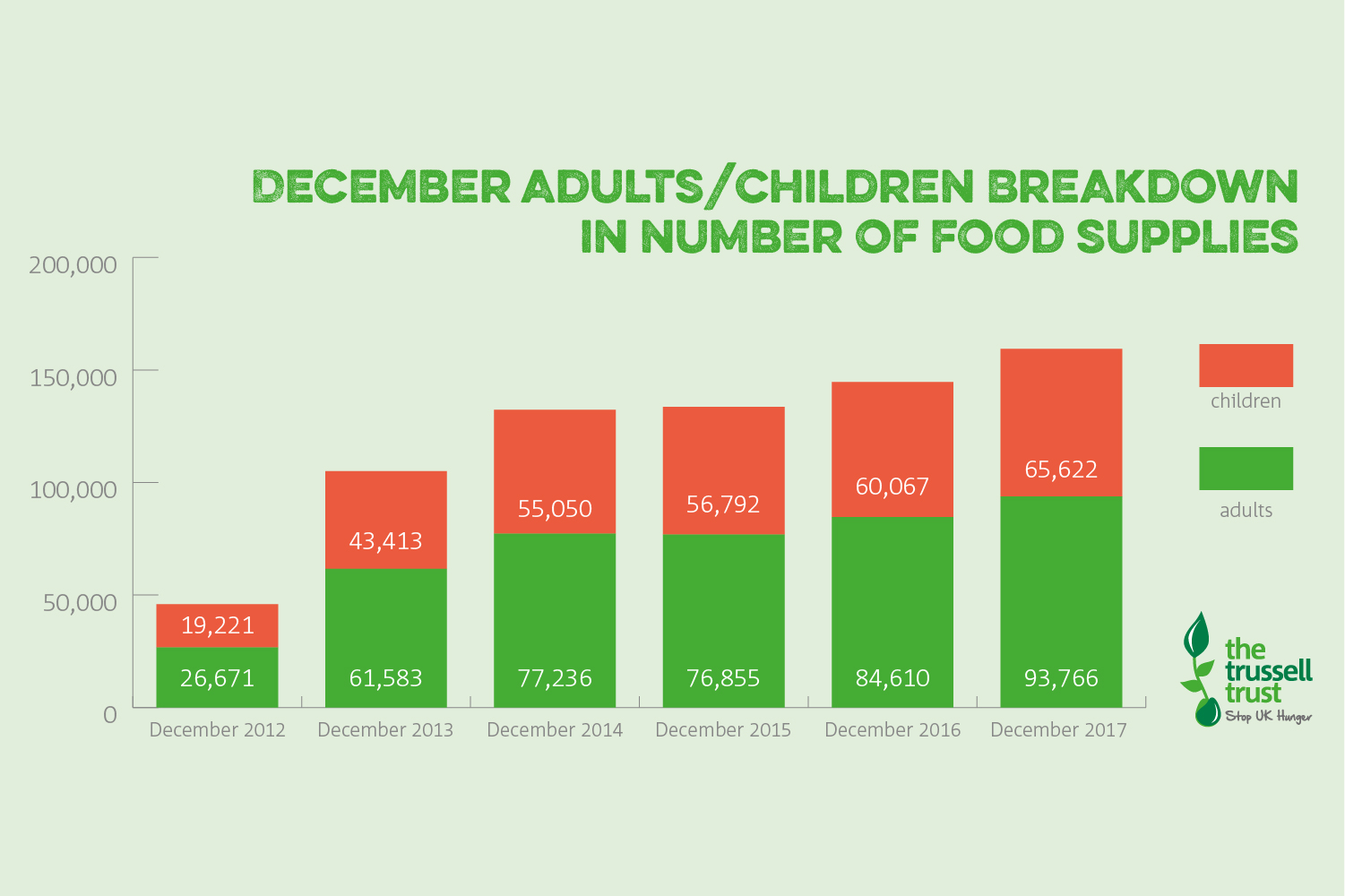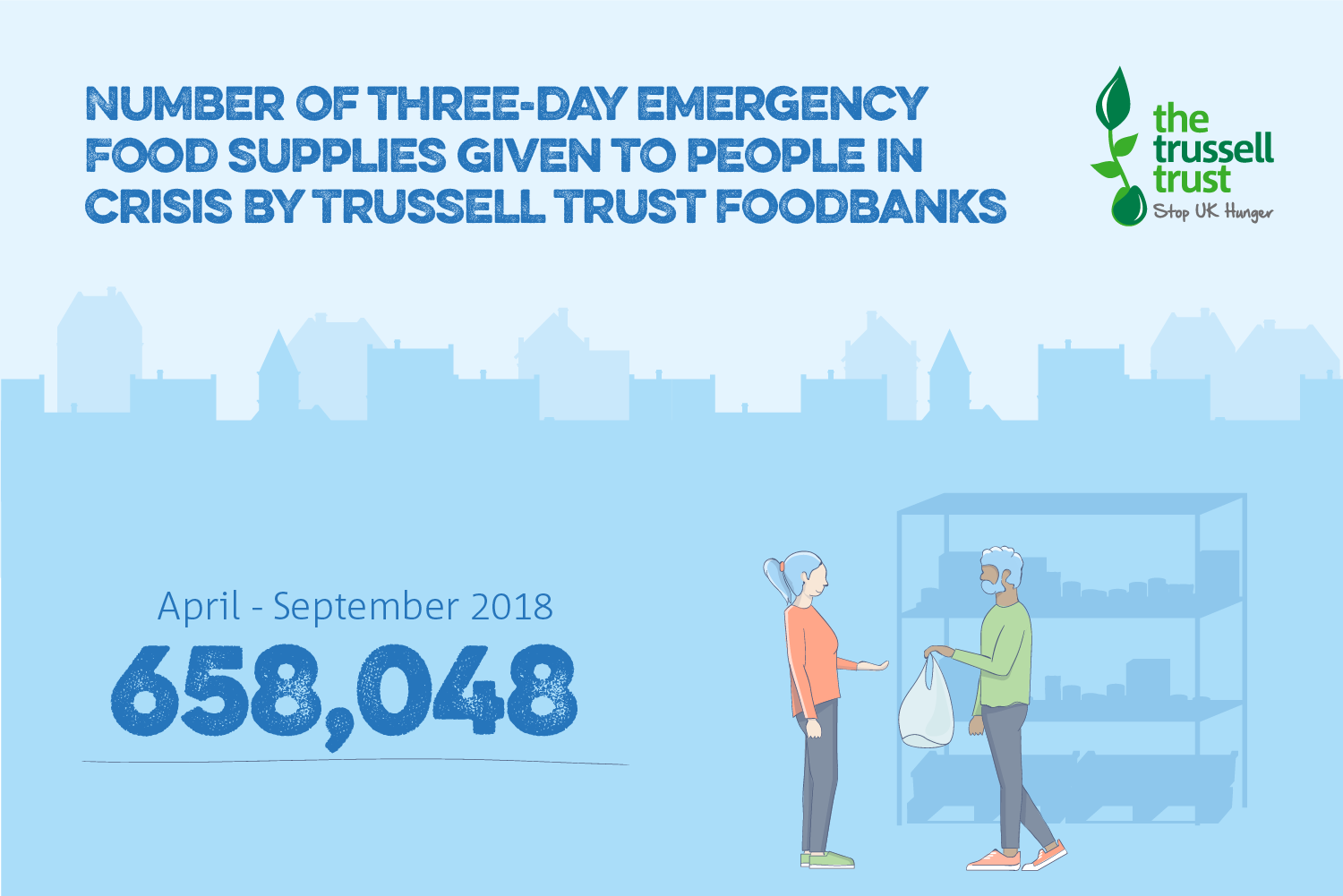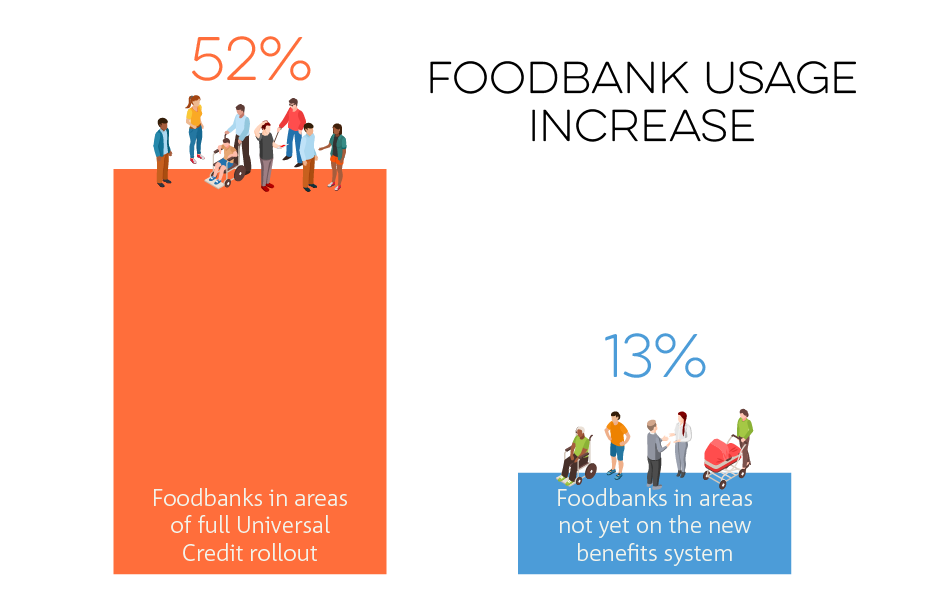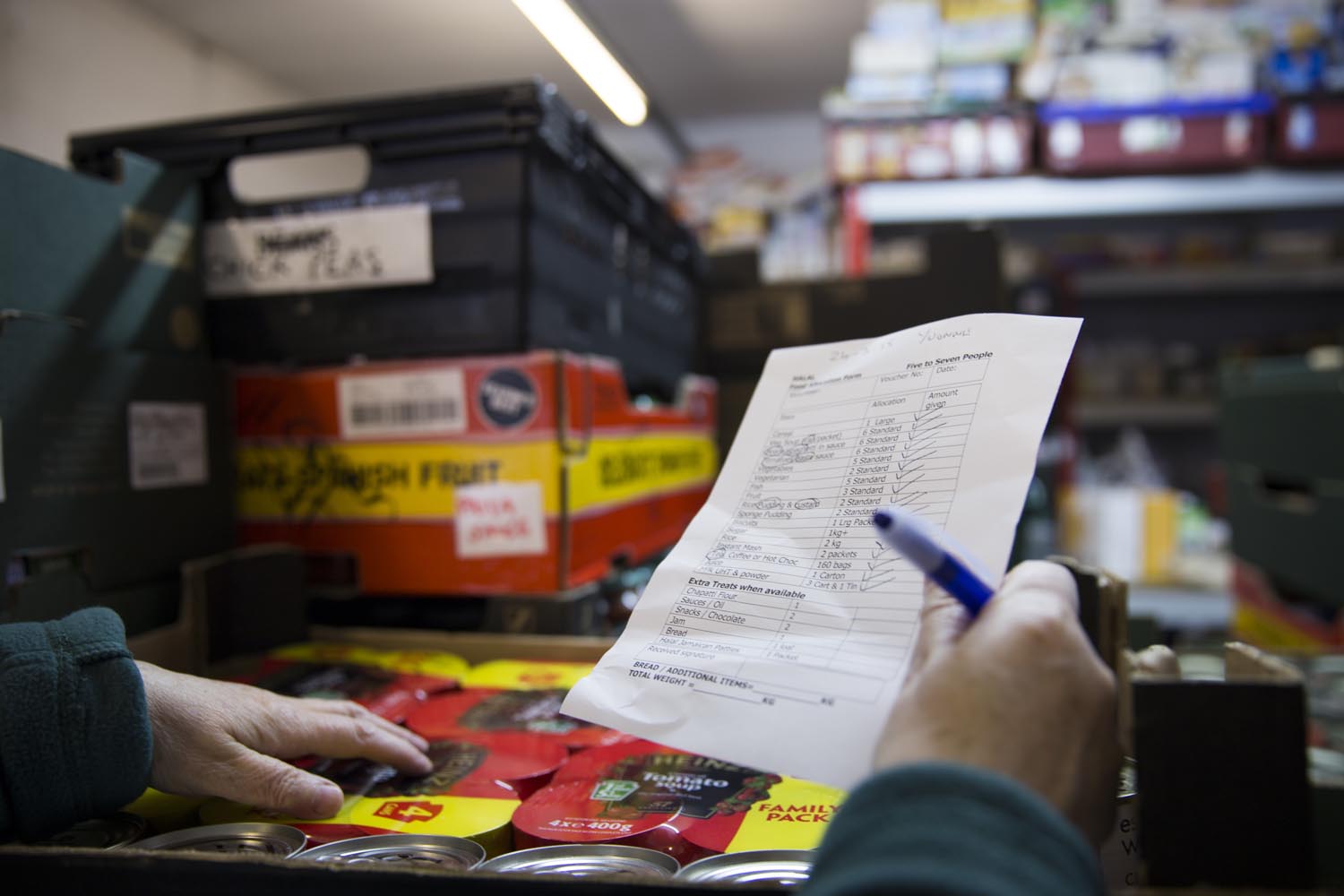This is a guest blog post by our partner Asda.
This Christmas, we’re saying a big festive thank you to everyone helping to deliver our £20m Asda Fight Hunger Create Change campaign. That’s all the unsung heroes – the volunteers, our colleagues and our customers – who share our vision that no-one in this country should go hungry.
People like Christine Bromley, who volunteers at FareShare’s East Midlands warehouse four days a week between 8.30am and 5.30pm.
Read about Christine and some of our other volunteers
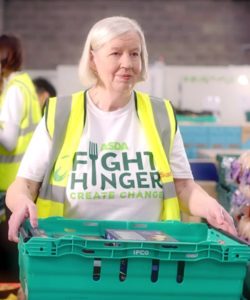 Christine, who’s 67 and has two children and four grandchildren, said: “I’ve lived and worked in Leicester all of my life, so it means a lot to me to be able to help people from all walks of life in the city.
Christine, who’s 67 and has two children and four grandchildren, said: “I’ve lived and worked in Leicester all of my life, so it means a lot to me to be able to help people from all walks of life in the city.
“I know there are lots of people in the city that need help – it’s the same in any big city.
“I used to work as a secretary, but in 2015 the company I worked at went under. I decided I wanted to become a volunteer and now I spend four days a week at the warehouse, working on average eight hours a day.
“I just wanted to help people, and also stop food waste. Good food being thrown away just shouldn’t be happening so I really wanted to do something to help.
“I used to go out with the drivers and see the people we help for myself – foodbanks, hostels, homeless shelters, soup kitchens, schools – and it was a real eye-opener. You appreciate how fortunate you are. I feel like I’m doing a good deed by helping all these people who are in need.”
“I really enjoy it. My family think the fact I volunteer here is brilliant, they’re all for it too.”
“When I worked as a secretary I felt like I was just a number, and it was all about profits only. This is completely different, it’s not for profit and is a much more positive and friendly environment.”
Asda’s Fight Hunger Create Change campaign has funded a new warehouse for FareShare East Midlands, meaning they can provide even more food to those in need.
Christine said: “Asda’s support means a lot to me, and it means a lot to everybody at FareShare. Asda being involved really highlights the work we do and the work FareShare does, so people find out about us, know what we’re about and how we help people.”
“The new warehouse is a lot better, we’ve got much more room and more space for chilled products, we used to be tripping over each other in the old warehouse.”
“I load food on to the vans, book food in and tidy up – anything that needs to be done really. There’s always a lot to do, the days fly by.”
“It’s a very physical role but I enjoy that side of it too – I used to really dislike sitting at a desk all day!”
So here’s a big festive thank you to Christine, for everything that you do!
 This Christmas, we’re saying a big festive thank you to everyone helping to deliver our £20m Asda Fight Hunger Create Change campaign. That’s all the unsung heroes – the volunteers, our colleagues and our customers – who share our vision that no-one in this country should go hungry.
This Christmas, we’re saying a big festive thank you to everyone helping to deliver our £20m Asda Fight Hunger Create Change campaign. That’s all the unsung heroes – the volunteers, our colleagues and our customers – who share our vision that no-one in this country should go hungry.
People like Liz, the Community Champion at our Warrington store. She’s been working with a local group to provide fresh food for people in the local community in need.
It all started when Ames, a local volunteer, rang the store and asked what Asda did with its food waste and whether we could donate it to her project.
“Her idea was to put community fridges in various community centres,” said Liz. “Local supermarkets could donate food, and members of the public could access the fridge and take fresh food in times of need.”
“Ames at this point didn’t have a fridge, so I offered her space in store to bag pack and raise money for the first fridge.”
With the first fridge in place, Liz supported Ames to access food distributed through the FareShare network and the three Asda stores in Warrington began to donate food each month. Called the Hapi Hub project, there are now four of these community fridges in the area.
Liz said: “Ames has also set up a community lunch club, and with our support ran the first one using produce donated to make a fantastic two-course meal, open to everyone, for only £3.”
Liz helped raise money on the day and the Asda Foundation supported with a top up too.
“Three sessions later and Ames is over the moon to be in profit for Hapi Hub, which will enable the next step of the journey – cooking lessons for kids starting in January!”
So here’s a big festive thank you to Liz, and to Ames, for everything that you do!
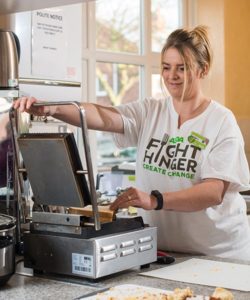 This Christmas, we’re saying a big festive thank you to everyone helping to deliver our £20m Asda Fight Hunger Create Change campaign. That’s all the unsung heroes – the volunteers, our colleagues and our customers – who share our vision that no-one in this country should go hungry.
This Christmas, we’re saying a big festive thank you to everyone helping to deliver our £20m Asda Fight Hunger Create Change campaign. That’s all the unsung heroes – the volunteers, our colleagues and our customers – who share our vision that no-one in this country should go hungry.
People like the Community Champion at Asda Middlesbrough, Jenny Barnett. Taking inspiration from our Fight Hunger Create Change campaign, Jenny contacted Redcar foodbank earlier this year to see if they needed help and has proved “a lifesaver” for them, setting up a permanent collection point in the store and volunteering with them every Wednesday.
The foodbank say they would have really struggled to stay afloat without Jenny and Asda’s help.
Foodbank manager Helen Hedges said: “The collection point has been a godsend to us, a real lifesaver, because sadly we’re getting more clients than ever. South Bank is quite a needy area.
“Sometimes we get half a ton of donations each month from Asda which has kept us afloat, particularly in the summer when we struggle for donations.”
“It’s brilliant having Jenny and Asda on board, the whole relationship works really well. She’s helped us set up awareness days in the store too which is great.”
“Jenny’s fantastic, particularly with the children who come in with clients.”
Jenny said: “With the Fight Hunger campaign I wanted the store to have a strong link to a local foodbank, so I contacted the one at Redcar.”
“I set up a permanent collection point and wanted to offer my services in person too. After my first shift there they said ‘please come back next week!’ so I go every Wednesday.”
“I have a great relationship with them, they’re absolutely brilliant – they’re like my best friends.
“When I’m there I help out in the cafe serving free hot meals to guests, wash up, make up food parcels, meet and greet the guests and play with their children while they’re getting support – anything they need.”
So here’s a big festive thank you to Jenny, and to Helen, for everything that you do!
 This Christmas, we’re saying a big festive thank you to everyone helping to deliver our £20m Asda Fight Hunger Create Change campaign. That’s all the unsung heroes – the volunteers, our colleagues and our customers – who share our vision that no-one in this country should go hungry.
This Christmas, we’re saying a big festive thank you to everyone helping to deliver our £20m Asda Fight Hunger Create Change campaign. That’s all the unsung heroes – the volunteers, our colleagues and our customers – who share our vision that no-one in this country should go hungry.
People like Jackie Beeley, who set up the Gateshead Foodbank with a group of church friends six years ago, when they discovered Gateshead did not have a foodbank.
Asda Gateshead’s community champion Lynn Ivison has helped them from their inception, and crucially helped them secure a permanent donation point in the store. This began six months ago and has made a huge difference to them.
Jackie said: “We set the foodbank up six years ago and it’s run totally by volunteers.”
“A few of us went to a local church concert and saw a sign for Durham Foodbank. We wondered if there was a Gateshead Foodbank and found out there wasn’t, so we thought it would be a good idea to set one up.”
“We gradually got volunteers and referral agencies on board and it went from there.”
“My working background is in social care and project management, so I use those skills to manage the foodbank.”
Jackie says that she has been really grateful for Lynn’s support.
“Lynn’s always been around to help us during the six years, and we’ve built up a great relationship with her” she said. “She also helped us get a £1,000 Asda Foundation for Christmas hampers to give out last year.”
“We hold awareness days in the store, and six months ago we got a permanent collection point in the store which has really taken off. Before that, they could only donate on our awareness days in the store.”
“Customers can now put food in whenever they want, and we go along every week to collect the donations. This is vital, we feed around 125 people a week, and we now have a regular supply of food which allows us to supply food to more people.”
So here’s a big festive thank you to Jackie, and to Lynn, for everything that you do!
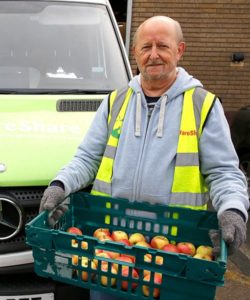 This Christmas, we’re saying a big festive thank you to everyone helping to deliver our £20m Asda Fight Hunger Create Change campaign. That’s all the unsung heroes – the volunteers, our colleagues and our customers – who share our vision that no-one in this country should go hungry.
This Christmas, we’re saying a big festive thank you to everyone helping to deliver our £20m Asda Fight Hunger Create Change campaign. That’s all the unsung heroes – the volunteers, our colleagues and our customers – who share our vision that no-one in this country should go hungry.
People like the fantastic team at FareShare’s London depot, who ensure essential food supplies are delivered to the charities and foodbanks helping people in need in the capital is expanding thanks to the Asda Fight Hunger Create Change campaign.
Derek Blunden is one of the volunteer drivers who distributes food for FareShare. He wanted to give something back to the community after selling his printing business following a cancer diagnosis.
Derek said: “I was going to work until I was 70, but I got diagnosed with prostate cancer about five years ago. About two years ago I fell asleep at work, which was due to the side effects of the treatment. I thought, ‘What am I doing, I’m 67 – I’m going to jack this in and give something back to the community.”
“I wanted to volunteer with the NHS but signing up with them would have taken several months, so I went along to a local volunteering centre. They suggested FareShare, and it’s been the best thing that’s ever happened to me.”
“I distribute food parcels to all sorts of people – on a typical day I could be visiting a foodbank, a community centre hosting a meal for elderly people and a hostel for homeless people – and they’re all extremely grateful. That’s one of the best things about doing the driving job – you see the end product, and you’re the person they thank, even though all I do is deliver the food!”
We’re investing £20 million over the next three years to help FareShare and The Trussell Trust – and at FareShare’s London depot our funding has paid for a delivery driver and a charities coordinator to join full time.”
FareShare’s London development manager Rachel Ledwith says this will be a tremendous help.
She said: “Asda’s support is making a huge difference. This funding means we can expand our reach further across the city, reaching those communities in the Greater London boroughs where we are seeing an increasing need for our services.”
“Without drivers we have no way of delivering the food. Our volunteers are brilliant and keep our operation moving, but with an employed driver we have a guarantee that deliveries will happen on the days they work – it makes our operation and support much more sustainable.”
“FareShare’s mission is to access and redistribute the estimated 270,000 tonnes of food which goes to waste in the UK each year, and redistribute it to those in need. Asda’s funding is enabling us to do that – affording us the opportunity to invest in our resource to over the next three years, feed thousands more vulnerable people across London and the UK each week.”
So here’s a big festive thank you to Jeff, Rachel and all the team at FareShare London for everything that you do!

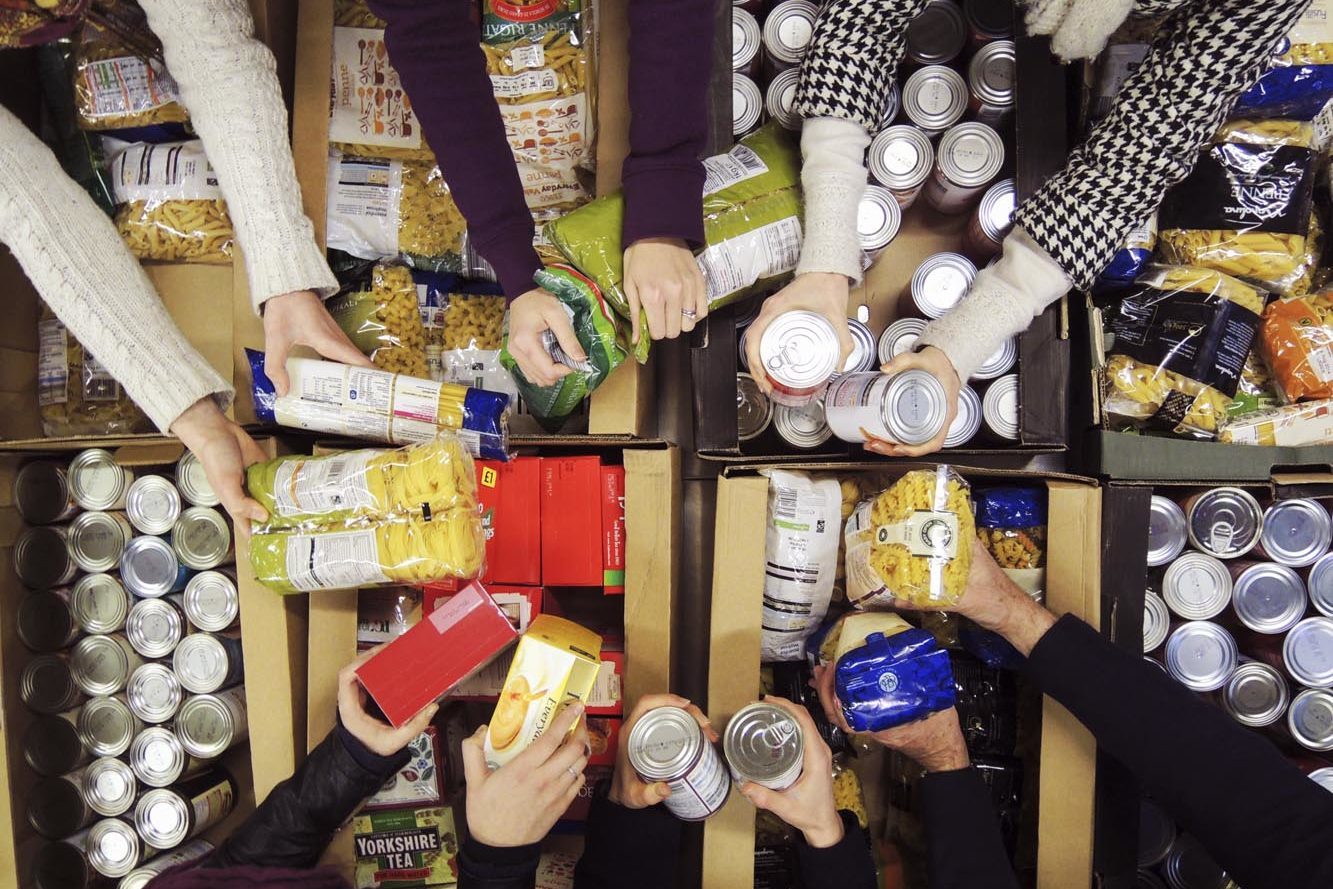
 A blog post by
A blog post by